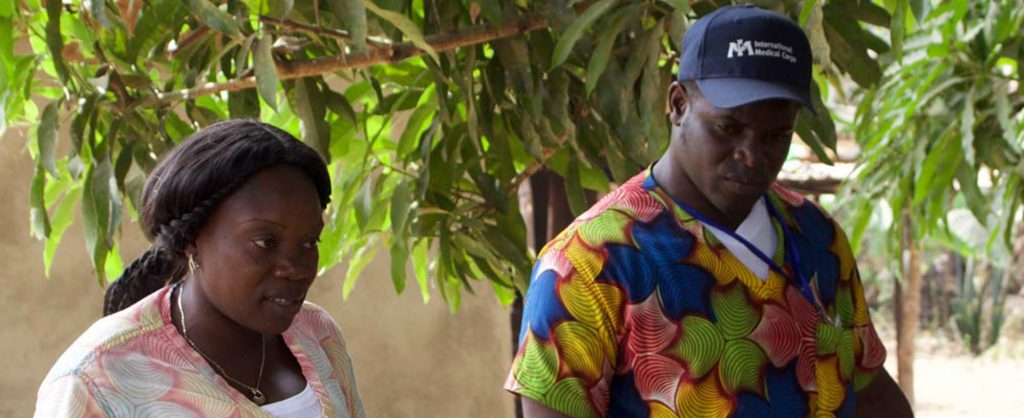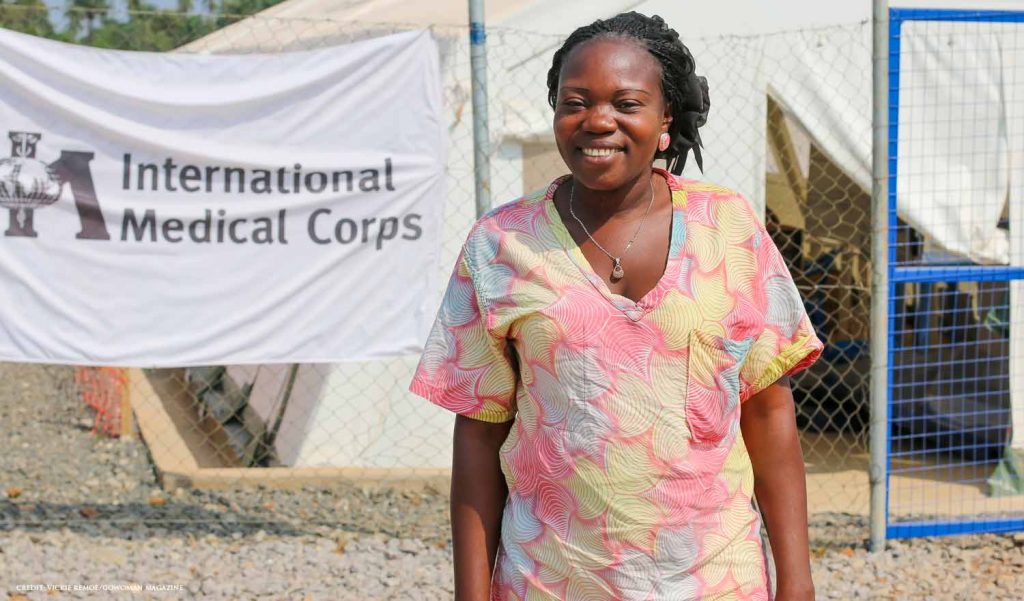Mariatu is an extraordinary woman.
She lost her daughter, her sister and most of her family to Ebola. She nearly died herself, first from the ravages of the virus and then to the crushing psychological scars it left behind.
But somehow Mariatu survived and found her way to the International Medical Corps Emergency Treatment Center at Lunsar.
To describe Mariatu as a survivor is an understatement. Before Ebola she survived the ravages of Sierra Leone’s bloody civil war, negotiating for her life first with the rebels and then with the government forces. Somehow she walked the line and preserved her family and her home. Then Ebola came.
Her sister was a nurse, caring for the early cases of the virus before she was taken ill and died. Ebola swept through the community and Mariatu’s family. She lost cousins, aunts and uncles. Then it took her daughter. Eventually she too contracted Ebola.
She remembers the fear that the disease brought with it. People were too scared to come close to her, pushing plates of food under her door. She remembers being too weak even to reach out and take the bowls of rice. And she also remembers the despair and emptiness she felt. But still this remarkable woman didn’t give up.
In early December she went to a meeting at Lunsar and told her story. Georgie Campbell, the International Medical Corps psychosocial coordinator, asked her to join the team. For the first time in months she found her life had a purpose and she found a way to pay tribute to her daughter. Now every day Mariatu and her colleagues are out in the community spreading the message that Ebola can be beaten.

Driving down dirt tracks for hours to reach remote villages the teams visit bereaved families and support survivors. Mariatu is not a big woman and she speaks softly, but standing under the shade of a tree the villagers listen with quiet respect as she tells them her story and teaches them the simple steps they need to take to beat this disease. Simple things like they don’t need to fear the chlorine sprays accompanying the ambulances. Things like the early warning signs of the disease. The villagers listen and repeat back the lesson, “wash your hands, wash your hands”. It’s hard to tell how much of this will be put into practice when the team is not around.
Mariatu knows her people are stubborn. It’s the same stubbornness that got them through all the ravages they’ve faced over the years. But it was also a stubborn adherence to traditional burial practices like the washing of dead bodies that drove the rapid spread of Ebola in Sierra Leone, and an unshakable trust in traditional healers.
Changing people’s social behavior and beliefs to help stop the spread isn’t going to happen overnight. The psychosocial teams are in this for the long haul, guiding and teaching.
Even with the number of reported cases falling off, Mariatu knows that it’s going to be a long hard fight before this country is free from Ebola.
But then she too is stubborn.
